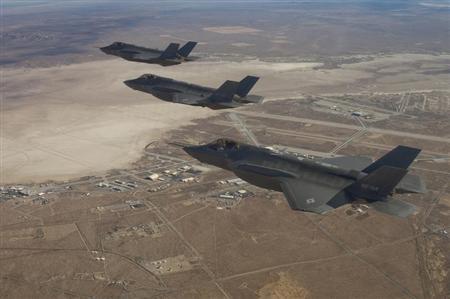The world’s largest stand-alone defense contractor, Lockheed Martin Corporation is expected to win a sizeable contract from South Korea for 40 of its F-35 Joint Strike Fighters. Although South Korea’s Defense Ministry did not clearly specify Lockheed Martin as the winner, the country’s need of the hour to beef up its stealth capability leaves the company’s F-35A stealth jet as the only viable contender in response to North Korea’s growing nuclear threat.
Per the impending contract, South Korea intends to buy 40 jets, instead of the original 60, to stay within the budget cap. Media reports indicate that South Korea might negotiate with The Boeing Co. and Eurofighter — a consortium led by European Aeronautic Defense and Space — for the 20 more fighter jets as per the original plan. South Korea’s Defense Ministry also stated that the country requires 50 to 80 new jets between 2017 and 2028 as Seoul is looking to replace its ageing F-4 and F-5 fighters.
Erin Moseley, president of BAE Systems’ Support Solutions sector, said Korea’s decision in 2012 to award the contract to BAE reflected its confidence in BAE as “a viable, experienced and proven provider of F-16 upgrades and system integration.”
Loren Thompson, chief operating officer of the Lexington Institute, said the deal marked a major break-through for Moseley’s unit because it opened the door to similar deals in other countries in coming years.
Historically, the companies that make warplanes have also serviced them and carried out major upgrades. Given the dearth of major new acquisition programs, weapons makers are fighting hard for all new orders, including deals for upgrades of existing systems.
Because the F-16 is the most widely installed fighter in the world, the sustainment of that fleet over the next 20 years is a multibillion dollar opportunity,” Thompson said.
“The BAE deal potentially sets a precedent that opens the door to similar deals in a dozen other countries,” he said, predicting that Lockheed would fight hard for future contracts. “At the very least, it puts pressure on Lockheed’s pricing,” he said.
 Canada Journal – News of the World Articles and videos to bring you the biggest Canadian news stories from across the country every day
Canada Journal – News of the World Articles and videos to bring you the biggest Canadian news stories from across the country every day



